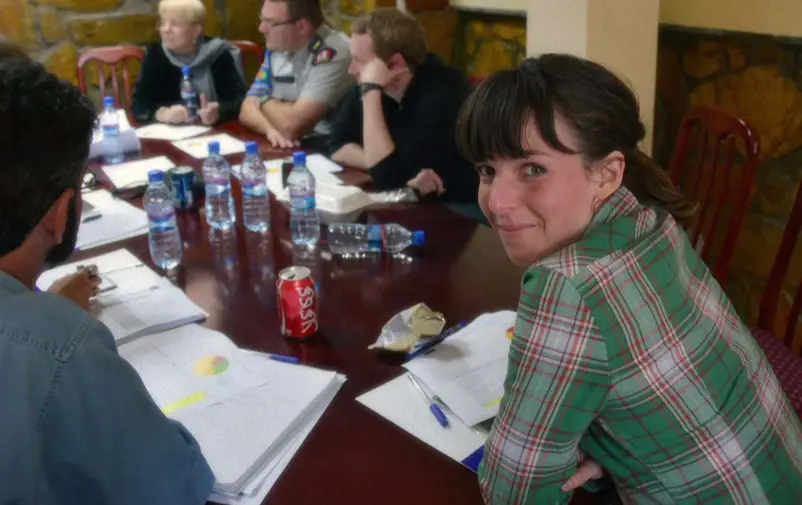
The 1325 Scholarship was established in memory of gender equality expert and peacebuilder Zaida Catalán.
The ideas behind security sector reform (SSR) have been evolving since the early 1990s. The number of international missions and programmes with an SSR mandate has increased in the past ten years, as SSR has emerged at the heart of the development and security nexus.
SSR is undertaken in conflict and post-conflict settings but also in developing countries, post-authoritarian states and stable democracies. It is as an integral part of the statebuilding agenda, however, that SSR has gained most attention in recent years. This has led to a dramatic increase in the number of people working on SSR.
Despite the rich panoply of policy frameworks, handbooks and guidance notes, there is still a lack of guidance specifically focused on the role of the SSR adviser or the specifics of an SSR portfolio that often has political dimensions. This handbook is an attempt to provide such guidance. This would enhance the effectiveness and impact of the SSR adviser, and probably make the reform process more sustainable in the long run.
The handbook provides insights into the role of an SSR adviser—the challenges connected to the role, and the tools, methodologies and best practice that can be applied when advising in complex political environments and reform contexts.
MORE FROM HOME
Are you a young peacebuilder at the beginning of your career with a strong commitment to women, peace and security? Do you have experience working in this field in the Democratic Republic of Congo or Afghanistan and want to take your commitment to the next level? Then you have the opportunity to apply for the 1325 scholarship for 2026.
2025-11-06 15:30FBA has both increased and adapted its work in Ukraine in the wake of Russia's invasion.
FBA in UkraineKlara Grenhagen works as a specialist at FBA's Africa unit with a focus on dialogue, reconciliation and peace processes.
More about our expertsFBA is part of Sweden’s development aid within the area of peace and security
Read more about the countries where we work